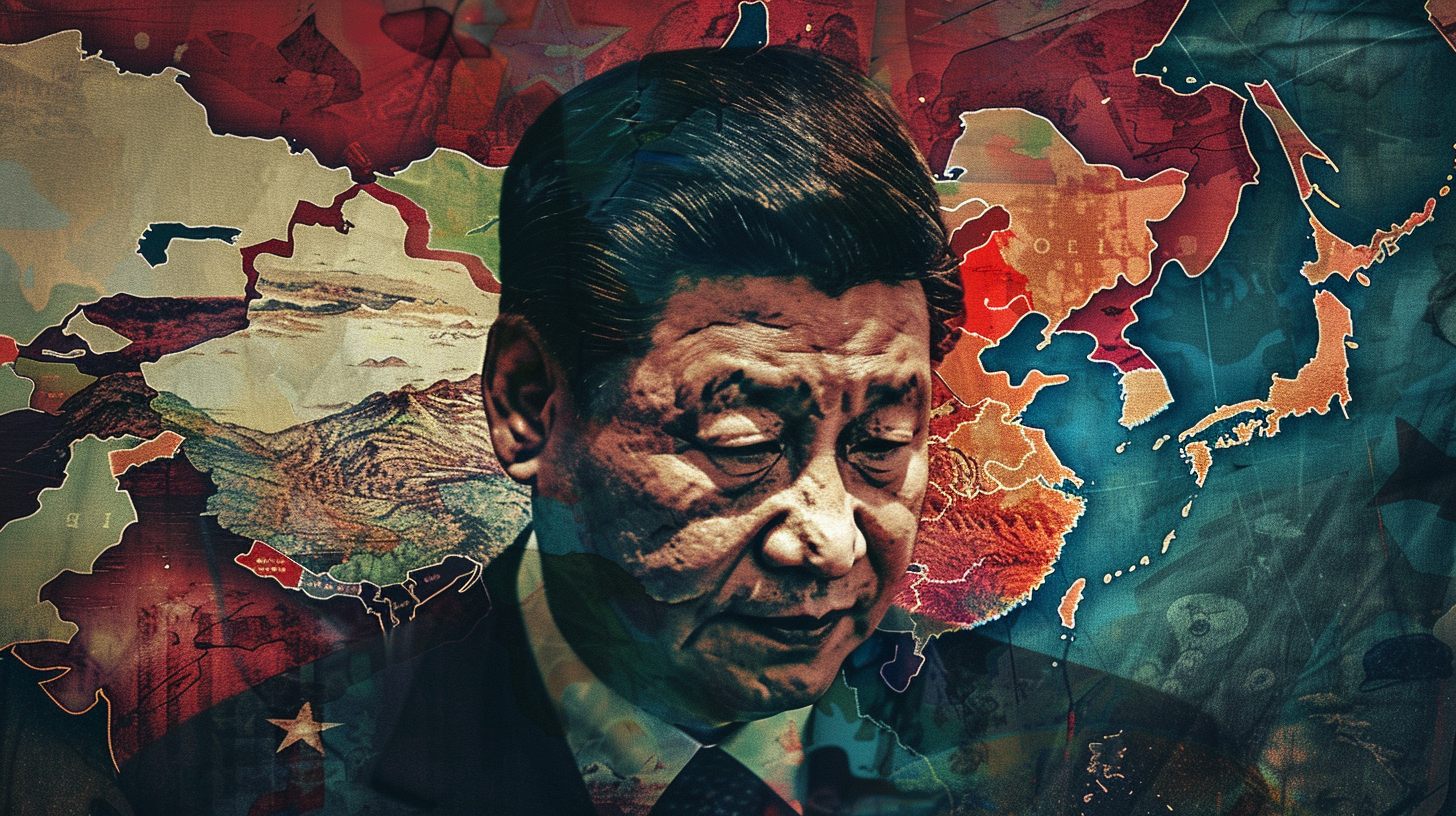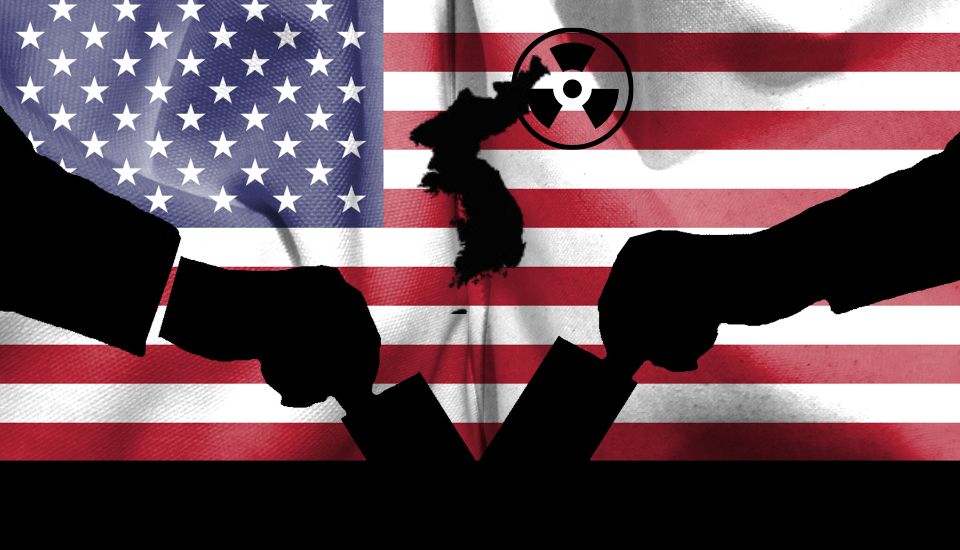
The Weakest Link: Navigating Beijing's Dilemmas in the China-DPRK-Russia Partnership
Commentary | May 31, 2024
Dong Ryul LEE
Chair, EAI China Research Center
Professor, Dongduk Women's University
Dong Ryul Lee, Chair of EAI China Research Center and a professor at Dongduk Women’s University, notes that while the partnership between China, DPRK, and Russia seems to have grown closer recently, it is more pertinent to focus on shifts within their bilateral relationships under the trilateral framework. Lee points out that China is in a dilemma: it needs to adopt a more proactive stance in this trilateral relationship to garner allies in its standoff with the U.S., while also managing its diplomatic ties with South Korea, the U.S., Japan, and Europe to safeguard its security interests. Furthermore, Lee stresses that South Korea must actively engage with China, the weakest link in the China-DPRK-Russia relationship, to achieve a breakthrough in resolving the North Korean issue.
|
Available Downloads |
I. The Advancing China-DPRK-Russia Cooperation
China has long been considered less proactive than North Korea (DPRK) regarding the strengthening of China-DPRK-Russia relations. However, recent discourse suggests a potential shift in China’s strategy towards the trilateral relationship, with China increasingly at the center of their interactions.
Since 2021, North Korea has sought to elevate its geopolitical significance by promoting rhetoric about a “new Cold War” and positioning itself as a “strategic center.” This strategy aims to capitalize on the confrontation between the United States and China-Russia alliance. North Korea has openly supported Russia in its war with Ukraine and has explicitly criticized the U.S. It has also aligned itself with China on the Taiwan issue, which is a major point of contention between the U.S. and China. North Korea frames U.S. behaviors as a clash between imperialism and socialism, advocating for a socialist bond between the DPRK and China. Highlighting its its strategic partnerships with China and Russia is essential for North Korea to overcome its economic crisis caused by United Nations (UN) sanctions and to prevent further sanctions. Indeed, China and Russia have vetoed sanctions on the DPRK for its missile tests, arguing that the international community should address “DPRK’s legitimate and reasonable concerns” (Besheer 2022).
Bilateral exchanges and cooperation among the DPRK, Russia, and China have significantly increased recently. Kim Jong Un has demonstrated his closeness to Putin by visiting Russia in 2019 and 2023 for summits and expanding military cooperation. Putin has reportedly accepted Kim Jong Un’s invitation to visit North Korea, which may take place this year, especially as 2024 marks the 75th anniversary of China-Russia and China-DPRK normalization. China and North Korea have designated this year as a “Friendship Year” and have resumed high-level bilateral exchanges, such as Zhao Leji, chairman of the Standing Committee of the National People’s Congress and the third-ranking member of the Politburo of the Chinese Communist Party, visiting North Korea. Bilateral relations between China and Russia are also growing stronger. Following his inauguration for a historic fifth term in May 2024, Putin made his first foreign trip to China for a summit with Xi Jinping. Similarly, Xi chose Russia for his first state visit after his inauguration for a third term in 2023. The China-Russia summit marks the fourth such meeting since Russia’s invasion of Ukraine in February 2022.
II. Two “Scenes” and China’s Shifting Attitude Towards the Trilateral Partnership
Recent Chinese actions in two events have sparked debate about whether its stance toward the China-DPRK-Russia relationship is changing. The first event was China’s abstention from a UN Security Council vote on a resolution to extend the Expert Panel assisting the DPRK Sanctions Committee, while Russia vetoed. The motives behind this unusual choice are controversial. The Chinese Foreign Ministry spokesperson stated that China was concerned that “the draft resolution has been forced to a vote … when the co-sponsors still had time for consultations.” In other words, China claimed it abstained in order to uphold the authority of the Security Council. Subsequently, it sided with Russia by supporting the proposal to include a one-year sunset clause on the entire sanctions regime, further asserting that “political settlement is the only viable way out” amid continued tensions on the Korean Peninsula. This stance implied China’s opposition to ongoing sanctions against North Korea (MFA 2024a). In essence, by abstaining, China has cautiously aligned with Russia to weaken the sanctions regime, demonstrating a case where trilateral solidarity has functioned.
The second event causing controversy over China’s shifting attitude was the joint statement and press conference following a summit on May 16 between China and Russia. The two leaders issued a “Joint Statement on Deepening the China-Russia Comprehensive Strategic Partnership of Coordination for the New Era” (MFA 2024b). This statement mentioned the United States 13 times, expressing a stronger sense of unity against the U.S. China has maintained “impartiality” regarding Russia’s invasion of Ukraine, presenting “four principles” to resolve the Ukraine crisis, which were mentioned in March 2022 during a summit with Germany and France. During this summit, they added new elements, including compliance with norms and principles set forth in the UN Charter, respecting state sovereignty and territorial integrity for all countries, considering their reasonable security concerns, and shaping “a new, balanced, effective and sustainable security architecture” (Kremlin 2024). This reflects Russia’s concerns about the North Atlantic Treaty Organization (NATO)’s growing influence, incorporated in the joint statement.
In response, Putin stated that the Asia-Pacific region “has no place for closed military-political alliances” and that “it is necessary to create a reliable and appropriate security architecture [in the region]” (Kremlin 2024). In other words, Russia and China have proactively agreed on the need for a new security framework addressing U.S. behaviors in Europe and the Asia-Pacific. China and Russia have confirmed and showcased their growing motivation and will to jointly respond to U.S. hostilities. Particularly, China’s claim to “promote the emergence of a multipolar world and economic globalization based on genuine multilateralism” against the U.S. was emphasized in the joint statement, indicating that Russia has identified with China’s aim to check the U.S.-led world order.
Furthermore, the recent joint statement by Chinese and Russian leaders explicitly opposed any military threats from the U.S. and its allies that could escalate confrontation with North Korea, potentially leading to armed conflicts on the Korean Peninsula. Meanwhile, the joint statement issued after the March 2023 summit called for the U.S. to create conditions conducive to the resumption of dialogue, addressing North Korea’s reasonable concerns. In this context, the 2024 joint statement not only places greater responsibility on the U.S. but also clearly supports the DPRK by opposing the actions of U.S. allies, implicitly referring to Japan and South Korea.
These two series of events suggest a shift in China’s attitude towards trilateral unity, moving away from passivity. The most critical variable in strengthening China-DPRK-Russia relations is indeed China. China has actively joined the trilateral bond by collaborating with Russia in supporting North Korea and advocating for sanctions relief. Concerns are growing that the new Cold War framework may intensify around the Korean Peninsula and that the trilateral unity will strengthen against the South Korea-U.S.-Japan alliance. These concerns are fueled by the increasing frequency of bilateral exchanges, with China at the center, and China’s evolving stance within the trilateral partnership.
III. Prospects for the Future China-DPRK-Russia Solidarity and ROK’s Way Forward
Determining whether China’s changing attitude represents a critical strategic shift and whether this will strengthen the trilateral partnership requires ongoing observation and analysis. It is essential to focus on the evolving solidarity among China, DPRK, and Russia. A significant factor is whether these trilateral relations will develop through a dedicated platform for exchange and unity, moving beyond a purely bilateral framework. In other words, it is important to monitor whether high-level talks, including a trilateral summit, will be materialized beyond existing bilateral summits.
Another key aspect is whether the three parties will engage in tangible, specific strategic cooperation beyond rhetorical solidarity against the U.S. It will be crucial to see if they make concrete efforts and negotiations to establish a new security architecture in Europe or the Asia-Pacific. As highlighted in the joint statement by the Chinese and Russian leaders, there is a shared perception of the need for a new security architecture. However, several hurdles remain before this consensus can be realized. China values economic cooperation with European states as much as it values cooperation with Russia, and Russia realistically lacks the motivation and capability to engage in a security architecture in the Asia-Pacific region.
Secondly, the primary impetus behind the trilateral collaboration is U.S. sanctions and pressure. While the three countries share the goal of responding to these measures, they differ fundamentally in their specific means and strategies. This discrepancy is evident in their varying levels of commitment and enthusiasm for trilateral cooperation. For instance, while China confronts and competes with the U.S., it also maintains dialogue and seeks coexistence, aiming to manage the situation effectively. This cautious approach explains why China strengthens its bilateral relationships with Russia and DPRK individually, while remaining wary of a formal trilateral partnership. Ultimately, the strengthening of China-DPRK-Russia relations will depend on future U.S.-China relations. South Korea must closely monitor the dynamics of U.S.-China relations and be prepared to respond swiftly and flexibly. It must strategically position itself to avoid becoming overly entangled in the U.S.-China confrontation.
Thirdly, although China-DPRK-Russia relations are growing tighter, a gap remains, and whether this gap will narrow requires close observation. While China has taken a significant step by explicitly supporting Russia’s stance on Ukraine, it still strives to maintain a balanced position due to its economic ties with European countries. In 2023, following his visit to Russia, Xi Jinping invited the prime ministers of Spain, France, and Italy, as well as the President of the European Commission, to closely manage its relationship with Europe. This year, before the summit with Putin, Xi visited three European countries, including France, in an effort to balance and manage its relationships in Europe.
While exchanges between China and North Korea are becoming more frequent, there is a noticeable difference in how each country approaches the relationship. North Korea emphasizes the special nature of their bond, referring to China as a “blood ally,” while China describes it as a “traditional relationship of friendship and cooperation,” indicating a more conventional perspective. Additionally, North Korea continually stresses unity against the U.S., whereas China tends to avoid mentioning the U.S. in the context of China-DPRK relations. China also downplays the North Korean nuclear issue in its relations with the U.S. Since the U.S.-China summit in Bali in 2022, China has either refrained from mentioning issues on the Korean Peninsula or has minimized such mentions.
China places a strong emphasis on the exchange of statecraft with North Korea. For instance, during Zhao Leji’s visit to the DPRK, he highlighted Chinese-style modernization and stressed the importance of strengthening development ties between the two countries. This approach reflects China’s intention to minimize discussions about third countries, such as the U.S., in its relationship with the DPRK, focusing instead on bilateral relations. To manage the DPRK stably, China proposes comprehensive cooperation activities. As part of the Friendship Year and the 75th-anniversary normalization events, China and North Korea have agreed to focus on four key projects: intensifying high-level exchanges, deepening mutually beneficial cooperation, promoting people-to-people exchanges, and strengthening strategic coordination (Xinhua 2024).
China feels the need to maintain a friendly relationship with North Korea to manage dramatic changes on the Korean Peninsula, including DPRK provocations, regime instability, and improvements in DPRK-U.S. relations. However, China also seeks to avoid escalating conflict with the U.S. over North Korean nuclear program. China is particularly concerned that North Korean provocations could strengthen ROK-U.S.-Japan security cooperation, thereby worsening the security environment around China. By continuously advocating for “strategic communication” to North Korea, China aims to manage the security crisis provoked by the DPRK. In this context, South Korea should closely monitor the complex and subtle changes in the China-DPRK relationship and develop a strategic approach to capitalize on these dynamics.
On the other hand, China cannot remain passive in its trilateral cooperation with DPRK and Russia, especially when securing friendly forces is crucial to counter U.S. sanctions and pressure. While China is not providing the level of military aid Russia demands nor being proactive in sanctions relief and economic assistance for North Korea, it must seek ways to strengthen its relationship with Russia while balancing ties with Europe. Additionally, China needs to manage its relationship with North Korea while considering its relationships with South Korea, Japan, and the U.S. Consequently, China’s current approach to China-DPRK-Russia cooperation is more reactive, responding to the demands of Russia and North Korea.
At this stage, it is more practical and important to focus on the changes in China-DPRK, DPRK-Russia, and China-Russia bilateral relations rather than viewing the trilateral partnership as a cohesive group. It is crucial to observe and prepare for these changes, especially considering that China’s situational responses could lead to a more structural shift.
China, caught in a complex dilemma, is engaging in the China-DPRK-Russia relationship while also diplomatically balancing its relations with the U.S., Europe, Japan, and South Korea. This balancing act includes participating in the ROK-China-Japan summit. To prevent the consolidation of a Cold War-like bloc confrontation between China-DPRK-Russia and ROK-U.S.-Japan, South Korea must actively leverage China’s dilemma, as China is a central axis in the trilateral solidarity.
While China is the most critical player in establishing the China-DPRK-Russia unity, it simultaneously has the weakest motivation and commitment among the three parties. South Korea should focus on managing its relationship with China, the weakest link in the trilateral partnership that North Korea is keen to strengthen. Given the current lack of robust strategic communication between South Korea and China, monitoring Chinese actions is more important than ever. As U.S.-China competition intensifies, both powers are deprioritizing the North Korean nuclear issue. Nonetheless, China faces a dilemma: it must avoid escalating conflict with the U.S. over the North Korean nuclear issue while managing tensions on the Korean Peninsula and exerting control over North Korea.
Therefore, South Korea must recognize the realistic limitations of bilateral cooperation aimed at denuclearization and unification, which have been the utmost priorities in its past China policy. Instead, South Korea should first leverage the fundamental consensus for stability on the Korean Peninsula. As DPRK provocations escalate, strategic communication with China, based on a shared understanding to alleviate instability on the Peninsula, will become increasingly important.
Moreover, while China and the U.S. not prioritizing the Korean issue presents a challenge for South Korea, it also offers an opportunity for ROK to take a leading role. South Korea should engage in proactive diplomacy, implement specific strategies and actions, and seek new diplomatic spaces and opportunities. Facing the direct threat from North Korea, ROK should prepare for various scenarios in the complex international order, create breakthroughs with bold proposals regarding China and North Korea, and lead strategies to find new opportunities.
References
Besheer, Margaret. 2022. “China, Russia Called to Explain DPRK Veto at UN.” Voice of America. June 8. https://www.voanews.com/a/china-russia-called-to-explain-dprk-veto-at-un-/6608585.html
Kremlin. 2024. “Media statement following Russia-China talks.” May 16.http://en.kremlin.ru/events/president/news/74049
Ministry of Foreign Affairs of the People’s Republic of China (MFA). 2024a. “Foreign Ministry Spokesperson Lin Jian’s Regular Press Conference on March 29, 2024.” March 29. https://www.mfa.gov.cn/eng/xwfw_665399/s2510_665401/2511_665403/202403/t20240329_11273709.html
________. 2024b. “President Xi Jinping and Russian President Vladimir Putin Jointly Sign and Issue A Joint Statement on Deepening the China-Russia Comprehensive Strategic Partnership of Coordination for the New Era.” May 16. https://www.mfa.gov.cn/eng/zxxx_662805/202405/t20240517_11306326.html
Xinhua. 2024. “China ready to take ‘China-DPRK Friendship Year’ as an opportunity to promote bilateral relations: top legislator.” April 12. https://english.news.cn/20240412/8d3cb603e3194ba8bd2aa83e334f3f4d/c.html
■ Dong Ryul LEE is the Chair of EAI China Research Center and a professor at the Department of Chinese Studies in Dongduk Women's University.
■ Typeset by: Jisoo Park, Research Associate
For inquiries: 02 2277 1683 (ext. 208) | jspark@eai.or.kr
Security and External Relations

Is the Second Korean War Imminent?
Jihwan HWANG | 29.May.2024

Shifting Sands: Examining the Abduction Issue and Prospects for Japan-DPRK Dialogue
Eunmi CHOI | 23.May.2024

The Korean Peninsula as a Hotspot: Steering Stability Beyond the 2024 U.S. Election
Seong-Ho SHEEN | 20.May.2024
LIST